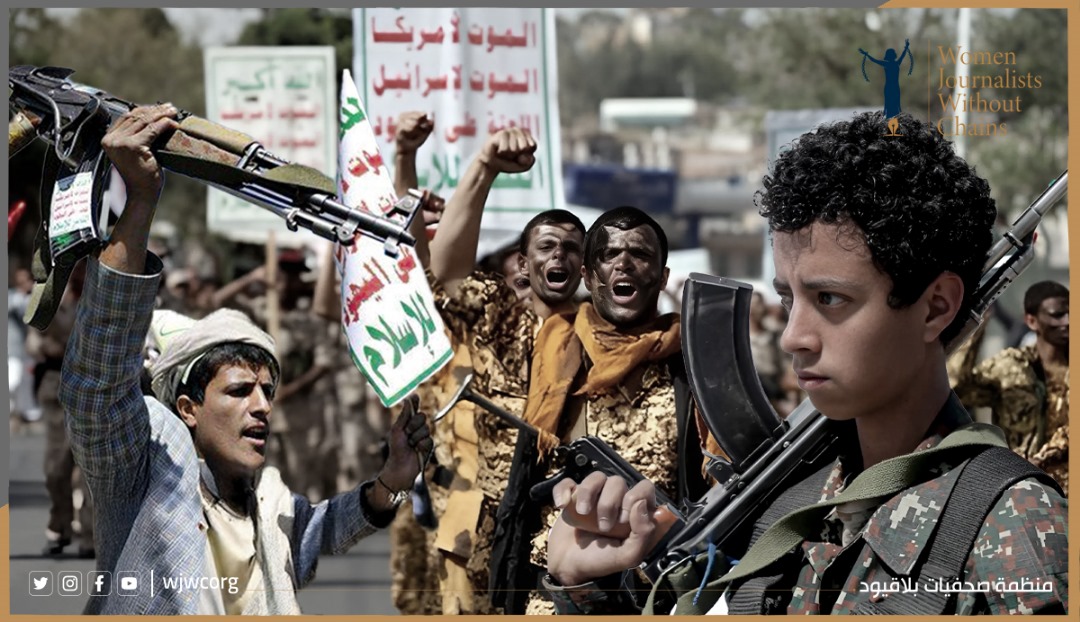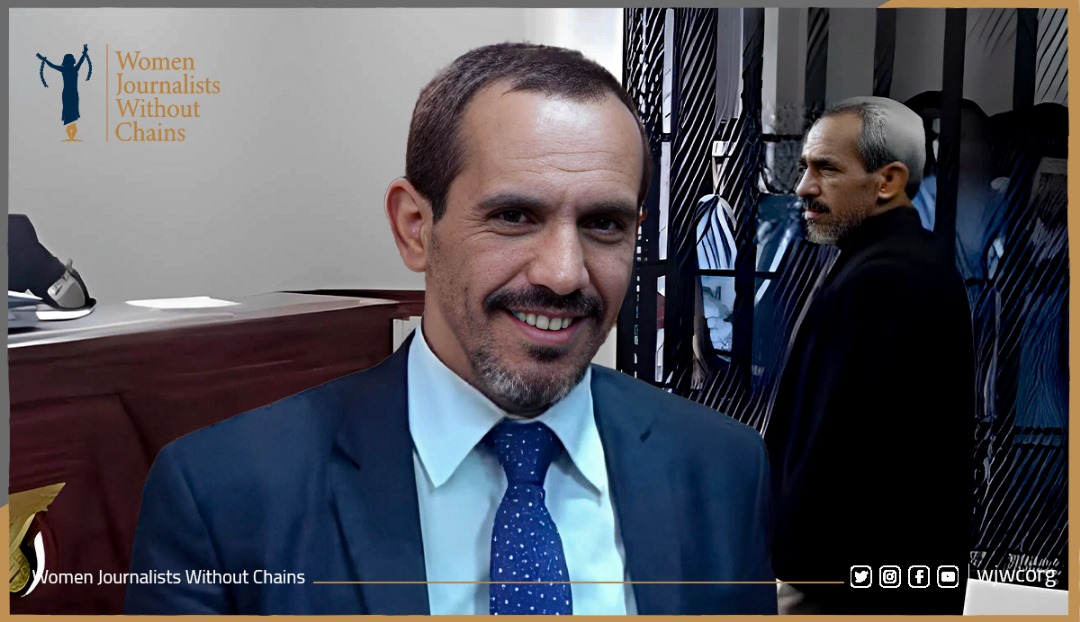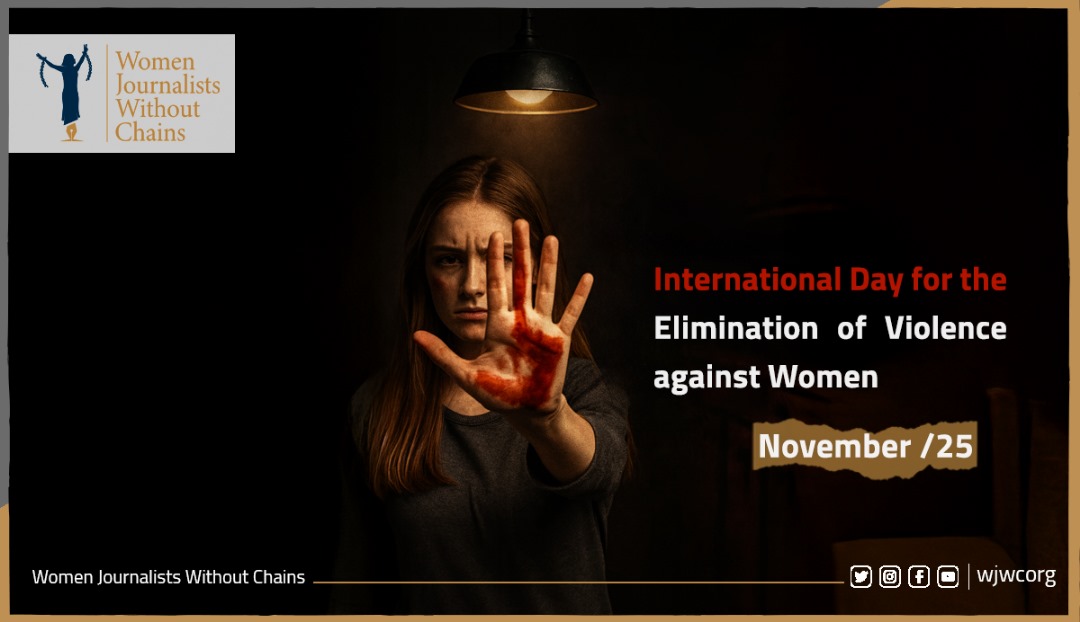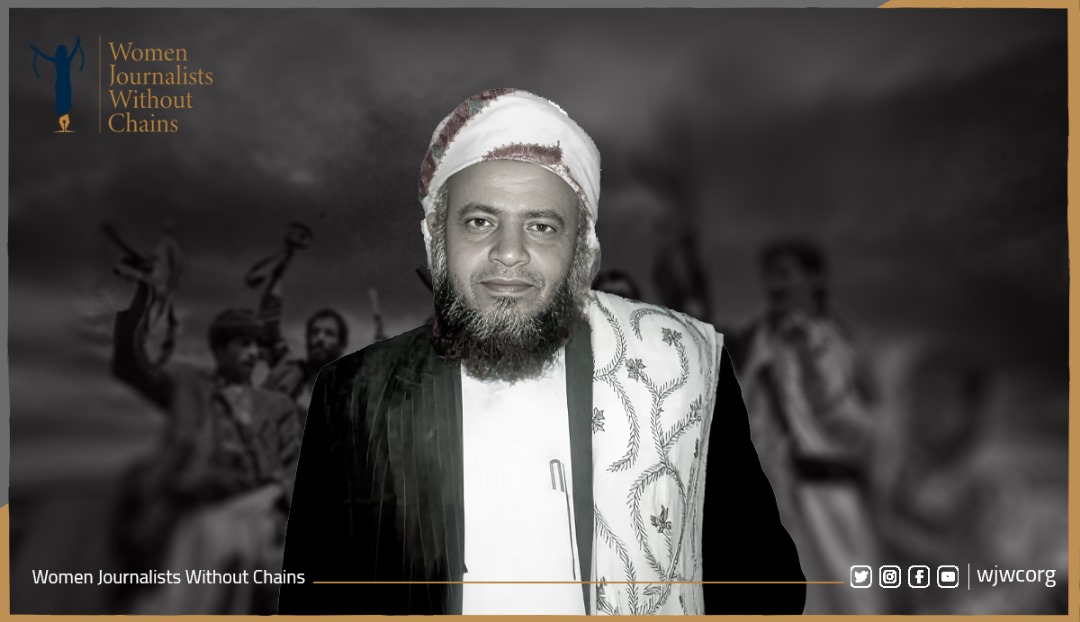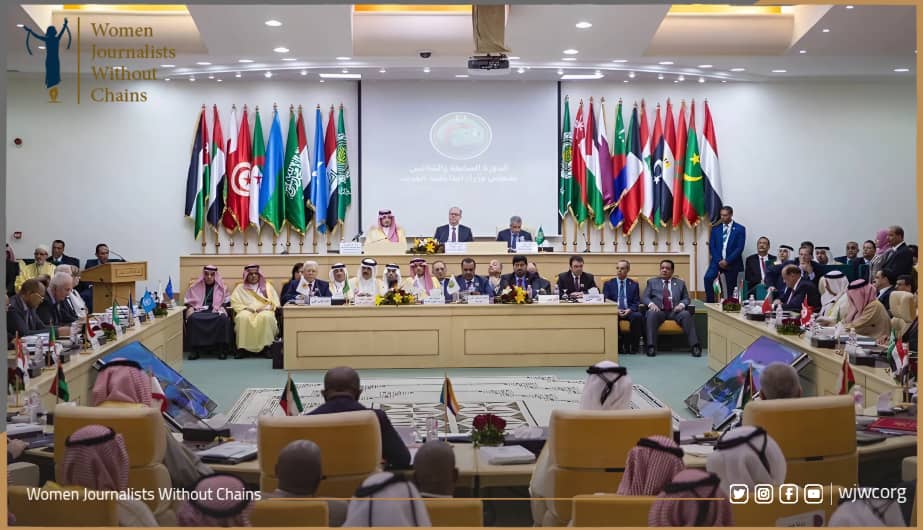Yemen - The Houthi militia persists in severe human rights abuses, targeting civilians amid escalating violence, according to Women Journalists Without Chains (WJWC).
The organization warns that ongoing international inaction deepens victims’ suffering and emboldens the militia’s impunity. In February 2025, WJWC documented a surge in Houthi crimes, including indiscriminate killings, arbitrary abductions, torture resulting in deaths, and extrajudicial executions. These violations, the group states, continue to worsen Yemen’s humanitarian crisis.
WJWC also recorded intensified forced recruitment campaigns targeting children, government employees, and university students—actions the group labels as blatant violations of fundamental rights. Additionally, the organization monitored widespread abuses across Yemen, including mass kidnappings, sieges on multiple areas, and raids on homes. Based on field reports and information gathered by its team, WJWC details these violations in an expanded statement, underscoring the militia’s systematic targeting of civilian populations.
First: Victims of random attacks, mines and snipers
During February 2025, WJWC documented the deaths and injuries of approximately 40 civilians, including women and children, from indiscriminate Houthi attacks across several Yemeni governorates. Taiz Governorate suffered the most, followed by Al Hudaydah, Lahj, Sana’a, Al Jawf, and Sa’dah. The organization reported nine civilians killed and 31 injured in attacks involving indiscriminate shelling, sniping, and explosions of mines and explosive devices planted by the militia along front lines, in controlled areas, or left as remnants. WJWC highlights these victims and their locations as follows:
- Taiz Governorate:
February 2: Younis Abdo Saif Al-Shamsi (40) was killed by a Houthi sniper north of Taiz city, shot in the left shoulder.
February 9: Nour Ghaleb (30) was seriously injured in the head by a Houthi sniper while collecting firewood near her home in Al-Mufatish neighborhood, Asifrah area, north of Taiz city.
February 23: A Houthi drone targeted a Halo Trust mine clearance team at Al-Qasr roundabout, east of Taiz city, disrupting work at this vital eastern entrance and causing panic among travelers under years-long siege.
February 26: An IED and landmine explosion in Maqbanah district, west of Taiz, killed Fathi Abdul Raqib Al-Jumairi and Abdul Nour Muhammad Hael, and seriously injured Aqeel Ali Al-Silani and Dhaifallah Ahmed Qasim.
- Al Hudaidah Governorate:
February 2: Musa Muhammad Ali Abdullah (10) was killed and his father injured when a landmine exploded in Al-Suwaydiyah, Al-Khawkhah district, south of Al Hudaydah, while riding a donkey. The blast amputated the child’s left foot below the knee and right foot at the ankle before his death, with shrapnel wounding his father.
February 20: Aisha Ali Bakhit (9) died instantly when a landmine exploded while she grazed livestock in Al-Jah Al-Asfal, southwest of Bayt Al-Faqih district, also killing three of her animals.
February 25: Houthi mortar shelling in Bani Akish village, northwest of Hays district, injured four civilians, including Ali Abdullah Salem Kziz (2.5), hit by shrapnel in his right eye, Hala Ali Kulaib, Jumaa Mohammed Batili (shrapnel throughout his body), and Haitham Abdullah Salem Kziz.
- Lahj Governorate:
February 18: A landmine exploded in Al-Musaimeer District, killing a man in his thirties and injuring four others, including children.
February 24: A landmine in Wadi Al-Lakhb, Saber District, killed 17-year-old Al-Sabri.
- Sana’a Governorate:
January 31: Aisha Naji Al-Qash’a (35) died in a landmine explosion while herding sheep in Jabal Al-Qarn, Nihm District. Her daughter Khadija Abdullah Janah (7) and uncle Janah Mohammed Janah (25) suffered psychological trauma.
February 6: Ali Mabkhout Al-Asimi (44) was killed by a landmine while herding sheep in Jabal Yam, Nihm District.
- Al-Jawf Governorate
February 2: A landmine exploded in a car carrying six civilians on Al-Yatima Desert Road, Khab and Ash Sha’af District, seriously injuring them as they returned from Saudi Arabia.
- Sa’dah Governorate:
February 28: A landmine explosion in Mashan, Haydan District, injured five civilians, including a family head, his wife, and three children, causing severe wounds.
Casualty Breakdown by Governorate
Total Deaths: 9
Total Injuries: 31
Taiz: 3 deaths, 8 injuries
Al Hudaidah: 2 deaths, 6 injuries
Lahj: 2 deaths, 4 injuries
Sana’a: 2 deaths, 2 injuries
Al-Jawf: 0 deaths, 6 injuries
Sa’dah: 0 deaths, 5 injuries
Second: Victims of Torture to Death and Extrajudicial Executions
In February 2025, Women Journalists Without Chains documented the deaths of four individuals due to torture in Houthi militia prisons, alongside one extrajudicial execution. The organization details these incidents as follows:
February 1: Mohammed Ali Al-Naseem, a former prisoner, died from severe injuries sustained during five years of brutal torture in Houthi prisons, where he was held since January 25, 2020, succumbing ten days after his release.
February 8: Jamal Jamil Al-Kamel was kidnapped from a qat market in Ibb city on January 20, 2025, tortured with sharp objects until his skull shattered, doused with raw acetate to obscure his identity, and dumped in Al-Sahoul by Houthi militia members.
February 11: Ahmed Ba’alawi, a World Food Program employee, died in a Houthi prison in Sa’dah Governorate from systematic torture, less than a month after his abduction on January 23, 2025, with colleagues.
February 18: Jamal Ahmed Rawah al-Mahmoudi, detained since January 12, 2020, in Sana’a’s Central Security Prison, died days after his release on February 7, 2025, due to complications from severe torture.
February 8: Alawi Saleh Alawi Sakran was extrajudicially executed in Rada’a, Al Bayda Governorate, by Houthi militia. Targeted while on his motorcycle near a checkpoint, he was pursued, struck by a military vehicle, assaulted, and shot dead. The militia claimed he was part of an armed group, a justification contradicted by surveillance footage, witnesses, and a Houthi member’s testimony citing his criticism of their abuses as the trigger.
Third: Mass Violations in the Governorates of Al Bayda, Ibb, and Al Hudaidah
In February 2025, WJWC reported ongoing human rights abuses by the Houthi militia in Al Bayda, Ibb, and Al Hudaidah governorates, marked by military sieges, kidnapping campaigns, arbitrary arrests, indiscriminate shelling, and property destruction. The organization noted a significant escalation of these systematic violations, reflecting repressive policies against civilians amid a lack of accountability.
Siege of Hanakat Al Masoud Village – Al Bayda Governorate
Since early January 2025, the Houthi militia has maintained a suffocating siege on Hanakat Al Masoud village in Rada’a, Al Bayda Governorate. On January 9, the militia launched a week-long assault with medium and heavy weapons and drones, seizing control of the area. The attack killed 16 civilians, including women and children, and seriously injured dozens. Over 500 civilians, including children and the elderly, were kidnapped in a widespread campaign, with reports of torture and ill-treatment. Indiscriminate shelling destroyed dozens of homes, with six blown up and 12 looted.
Violations in Ibb Governorate
On February 17, Houthi militias stormed Dhi al-Sula’ village in the Kahlan sub-district of al-Radhmah District, attacking homes with gunfire, forcibly entering properties, and threatening to demolish residences, creating a climate of fear among residents.
On February 26, in the Al-Sharnama sub-district, the militia arrested over 60 people, including Aqil Fadhel, the head of the General People’s Congress branch in Ibb, and his family. They also exhumed the grave of Ali Saif Fadhel, killed in July 2023, sparking local outrage.
To suppress documentation of these events, the militias cut off communications and internet access, further isolating the region and consolidating their control through intimidation and repression.
Violations in Al Hudaidah Governorate
Throughout February, Houthi militias established military outposts within residential neighborhoods in the Ad Durayhimi District. They transformed schools and mosques into storage facilities for weapons and indiscriminately scattered landmines. Furthermore, the militias enforced sectarian training programs and detained individuals who opposed their involvement, exacerbating the climate of intimidation and fear among local residents.
In the Al-Jarahi District during the same month, excavation activities further disrupted internet and communication services in both Hays and Al-Khokha districts. This disruption has significantly complicated the daily lives of civilians, who already face numerous challenges in accessing essential services and staying informed about ongoing developments in their areas.
On February 26, in Al Hudaidah city, the militia tightened its grip on the local economy by closing 38 shops and arresting 18 merchants. Authorities cited reasons related to price control and alleged support for sectarian activities, demonstrating a pattern of increasing repression and economic stranglehold within the region.
Fourth: Forced Conscription
The Houthi militia continues to impose its military and sectarian programs on government employees and students in areas under its control. Known as "Al-Aqsa Flood Courses," these programs include military training in the use of medium and heavy weapons, alongside mandatory lectures promoting Houthi ideology.
In February 2025, reports indicated that the militia coerced thousands of government employees and students to participate in these courses, threatening their basic rights and undermining their personal and academic independence.
- Government Sector
Despite the Houthi militia's announcement two months ago that it would pay half a monthly salary to employees in areas under its control, it imposed a harsh condition requiring mandatory military and sectarian training as a prerequisite for salary disbursement. Many employees report being excluded from payrolls, highlighting a clear policy of extortion. They are coerced into participating in military and sectarian activities in exchange for their basic rights, severely jeopardizing the independence of government institutions and undermining their ability to provide public services. This policy constitutes a blatant violation of human rights and reinforces sectarian dominance within the state's administrative apparatus.
In this context, the organization has documented that the Houthi militia subjected employees from 39 government and private entities to its military and ideological programs across four governorates in February 2025. The affected entities, categorized by governorate, include the following:
Sana'a:
- Cancer Control Fund
- University of Science and Technology Hospital
- Al-Quds Hospital
- Al-Maghrabi Hospitals
- Al-Amal Hospital
- Local Water Authority
- Public Telecommunications Corporation
- General Authority for Civil Aviation and Meteorology
- Executive Unit for Road Maintenance
- Central Statistical Organization
- Radio and Television Corporation
- General Authority for Standards and Metrology
- Public Slaughterhouses Corporation
- General Authority for Zakat
- Yemen News Agency (Saba)
- Customs Authority
- Central Organization for Control and Auditing
- Ministry of Oil
- Ministry of Finance
- Tax Authority
- Office of the Attorney General
- Office of the Presidency
Al Hudaidah:
- West Coast Medical Complex
- Martyrs' Families Care Authority
- Al-Thawra Hospital
- Al-Zaidiyah District Court and Prosecutor's Office
- Educational Sector in Al-Zaidiyah District
Hajjah:
- Health and Environment Office in al-Qaidah District
- Branch of the General Authority for Zakat in al-Qaidah District
Ibb:
- Public Prosecution Office
- Educational Sector in al-Udain District
Al-Mahwit:
- Al-Rujum Primary Court
Al-Jawf:
- Agriculture and Irrigation Office in the governorate and districts, along with members of agricultural cooperatives.
- Universities and Institutes
On February 8, 2025, two students were killed and three others seriously injured in the Al-Hawban area, east of Taiz, during a live ammunition exercise as part of military training imposed by the Houthi militia. This tragic incident highlights the ongoing violations committed by the militia at universities and institutes.
From October 2024 to January 2025, the organization documented the transformation of 23 universities and seven institutes across Sana'a, Al Hudaydah, Ibb, Dhamar, Amran, Sa'dah, Hajjah, and Al Bayda into centers for military and ideological training. Students were coerced into participating in "Al-Aqsa Flood" courses under threats of expulsion or arrest. Additionally, the militia linked the awarding of degrees and job opportunities to involvement in military activities, resulting in the dismissal of academics and depriving thousands of students of a fair education.
- Schools
According to human rights reports, the Houthi militia has transformed over 700 schools into centers for recruiting children and training them in the use of weapons in areas under its control, including Sana'a, Hodaidah, Ibb, Dhamar, Amran, Sa'dah, Hajjah, and Al Bayda. Thousands of male and female students have been coerced into participating in the "Al-Aqsa Flood" training courses.
One particularly tragic case is that of Radad Saleh Ghaleb, a 14-year-old boy who was brutally tortured in a closed training center in the Nihm district of Sana'a in February 2025 after he refused to participate in military activities. This torture ultimately led to his death from severe internal bleeding.
- Women
Women have not been spared from the Houthi militia's recruitment and training activities. The militia recently launched a new campaign targeting dozens of girls of various ages in Sana'a. These girls were gathered from schools and neighborhoods and enrolled in intensive courses focused on weapons use and military training.
Reports indicate that 75 girls from the Old Sana'a, Tahrir, and al-Sab'een districts were recruited and assigned to the militia's women's military formation. This alarming trend underscores the militia's systematic approach to integrating women into its military framework.
Fifth: Attacks and Kidnappings of African Migrants and Fears of Their Exploitation
Since mid-February, the Houthi militia has initiated a widespread campaign of kidnappings targeting hundreds of African migrants in Sana'a and Dhamar. This campaign has involved raids on both residential and commercial properties in search of these individuals. Many migrants have been taken to unknown locations, raising serious concerns about their potential forced exploitation. Previous reports have documented the recruitment of thousands of African migrants to fight alongside the militia after undergoing training in special camps.
This ongoing campaign has heightened fears regarding the fate of these migrants, as reports of ill-treatment and threats related to their uncertain situations continue to emerge. The risk of their exploitation as pawns in the ongoing conflict in Yemen is increasingly evident.
In a troubling incident, an elderly Ethiopian man named Abdul Qader was assaulted by Houthi security personnel in the city of Dhamar, despite holding legal residency. He was severely beaten with rifle butts, resulting in significant injuries and bleeding.
War Crimes and Crimes Against Humanity
Women Journalists Without Chains asserts that the crimes and violations continuously committed by the Houthi militia against civilians constitute a blatant breach of international humanitarian law, including crimes against humanity and war crimes. These violations include targeting civilians, indiscriminate killings, torture, extrajudicial executions, forced displacement, child conscription, arbitrary detentions, and the destruction of civilian property.
Additionally, the imposition of military and sectarian courses represents a violation of freedom of thought and belief, aimed at stripping individuals of their fundamental rights. These practices necessitate accountability for their perpetrators under international law to ensure justice and accountability.
Condemnation and Recommendations
Women Journalists Without Chains strongly condemns the ongoing crimes and violations perpetrated by the Houthi militia in Yemen. These include the siege imposed on villages and residential areas, as well as the abduction of migrants. Such blockades are clear violations of human rights, depriving civilians of essential needs like food and medicine, which jeopardizes their lives. Moreover, the abduction of migrants for forced labor is a serious infringement on human rights and amounts to a crime against humanity.
These actions are part of a larger pattern of abuse that threatens the fundamental rights of civilians. WJWC calls for urgent accountability at both national and international levels to ensure that those responsible are brought to justice. The organization urges the international community and relevant authorities to conduct immediate and thorough investigations into these violations. Legal actions must be taken to hold the perpetrators accountable under international law.
WJWC also calls on the United Nations and other international bodies to take swift action to lift the siege on affected villages and to facilitate the delivery of lifesaving humanitarian aid to civilians trapped in these areas. Furthermore, the organization emphasizes the need to stop all forms of child conscription by any party, particularly the Houthi militia, and to provide comprehensive support for rehabilitation programs aimed at children impacted by the conflict.
It is crucial to hold accountable those enforcing military and sectarian courses that incite violence and division among citizens. WJWC demands legal action against individuals involved in such activities. The organization insists that the international community must pressure the Houthi militia to end the abduction of migrants and their exploitation as forced laborers, while also providing legal and humanitarian support to all victims of these violations.
WJWC advocates for enhanced international support for human rights in Yemen, ensuring the protection of civilians from all forms of abuse in line with international treaties and agreements. Finally, the organization stresses the need for urgent measures to hold accountable those responsible for sectarian crimes and to uphold freedom of thought and belief for everyone in Yemen, free from discrimination or coercion.
In closing, WJWC reaffirms that the ongoing violations by the Houthi militia represent a gross breach of international humanitarian standards. These practices require an immediate and decisive response from the international community to protect civilians, ensure accountability for offenders, and deliver justice to the victims. The persistence of these abuses not only reflects a disregard for human rights but also poses a significant threat to regional security and stability. WJWC reiterates its call for all necessary actions to uphold human rights in Yemen and to end these grave violations.

 Ar
Ar  En
En 